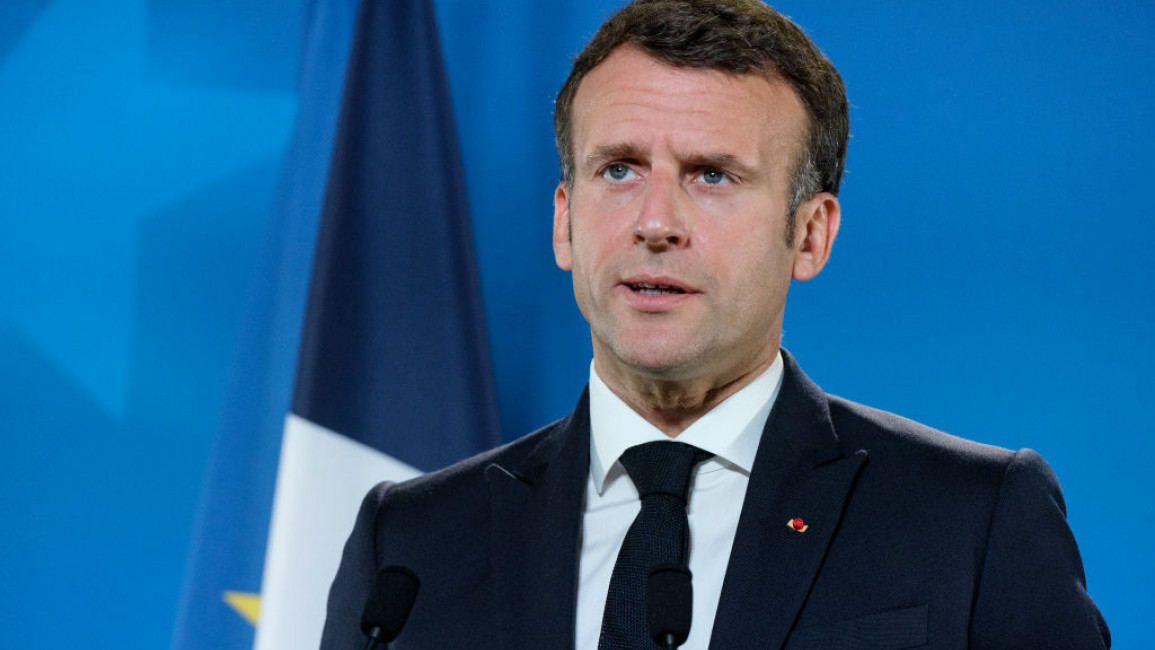Lebanon economic crisis deepens as France announces aid conference
Lebanon faced yet more misery Friday after premier-designate Saad Hariri failed to form a government, and as France prepares to host an aid conference on the first anniversary of the country's port blast.
Hariri's exit Thursday comes amid a financial collapse branded by the World Bank as one of the planet's worst since the 19th century.
His departure leaves the country rudderless as Lebanon faces soaring poverty, a plummeting currency, angry protests and shortages of basic items from medicine to fuel.
Caretaker health minister Hamad Hassan said Friday the government would scrap subsidies on medicines costing less than 12,000 Lebanese pounds ($8 at the official rate) to shore up foreign currency reserves.
Protests on Friday flared in the northern city of Tripoli over the deepening crisis, sparking clashes with the army that the Lebanese Red Cross said left at least 19 people wounded.
The army said young men had lobbed a hand grenade towards its forces, wounding five soldiers.
In a separate statement, it said another 10 soldiers where wounded by stones thrown by protestors.
Former colonial power France, which has spearheaded international efforts to lift Lebanon out of crisis, said Friday it would host an aid conference on August 4 to "respond to the needs of the Lebanese, whose situation is deteriorating every day".
The date coincides with the first anniversary of a vast explosion at Beirut port that killed more than 200 people and levelled swathes of the capital.
World powers have pledged millions of dollars in humanitarian aid since last year's port blast, but conditioned it on Lebanon installing a government capable of tackling corruption.
Even as international pressure mounted, with threats of European Union sanctions against them, Lebanese politicians' squabbling has repeatedly thwarted efforts to form a government.
The French foreign ministry said Hariri's failure "confirms the political deadlock which Lebanese leaders have deliberately continued for months, even as Lebanon sinks into unprecedented economic and social crisis."
After nine months of deliberations with President Michel Aoun over a cabinet, Hariri threw in the towel on Thursday, accusing Aoun of seeking a "blocking third" of seats for his supporters -- effectively a veto.
"If I formed the government that Michel Aoun wanted... I wouldn't have been able to run the country, because this isn't a cabinet I can work with," Hariri told Lebanon's Al-Jadeed TV after he stepped down.
Aoun, who has denied the accusations, will now have to call on parliament to pick a new premier-designate, who will be tasked with assembling another cabinet.
That in turn will have to be approved by the president and political factions.
This takes the political process back to square one, prompting Lebanese media to warn of many more months of drift, a delay the country can ill afford.
"With Hariri out, a worsening crisis is inevitable," said Lebanon's French-language daily L'Orient-Le Jour.
With cabinet and parliamentary seats distributed on confessional lines, negotiations will be further complicated by the exit of Hariri, a key figure among the country's Sunni Muslims.
Media reports have circulated the name of former premier Najib Mikati, last in power in 2014, as a likely replacement.
But Hariri has already said he would not endorse Mikati's candidacy.
Hariri, who has previously led three governments in Lebanon, is the second candidate to fail at forming a government in less than a year.
He had been nominated prime minister-designate in October 2020 to replace Mustapha Adib, a relatively unknown diplomat.
Adib had been nominated just weeks after the port explosion, but quit less than a month later over resistance to his proposed line up.
Outgoing prime minister Hassan Diab, who resigned in the wake of the August 4 explosion, has stayed on in a caretaker capacity until political leaders can agree on a new premier.
US Secretary of State Antony Blinken said Thursday that Lebanon's "political class has squandered the last nine months".
French top diplomat Jean-Yves Le Drian accused political leaders of "cynical self-destruction".
The Lebanese pound, officially pegged at 1,507 to the dollar, plunged to new lows on the black market following Hariri's announcement, selling for more than 22,000 to the greenback.

![Protests in Lebanon continue [Getty]](/sites/default/files/styles/medium_4_3/public/2021-07/GettyImages-1233962861.jpg?itok=2CKwPyz-)


